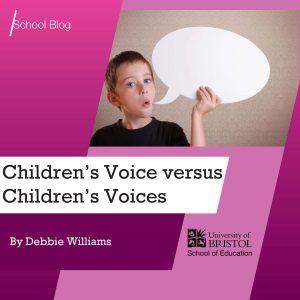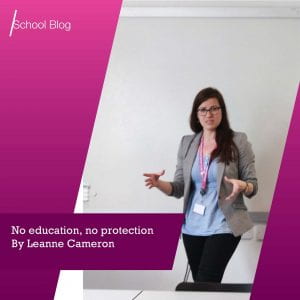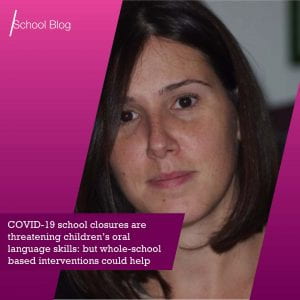Dr Wendy Martineau (Teaching Associate, School of Sociology, Politics and International Studies) and Dr Ioanna Bakopoulou (Senior Lecturer in Psychology in Education, School of Education)
We are delighted to see the publication of our article, What children need to flourish: Insights from a qualitative study of children’s mental health and wellbeing in the pandemic. This forms part of a collection of articles in a Special Issue of Education 3-13, which draw on educational research during the pandemic for the project of reimagining primary school education in the post pandemic world.

 By Debbie Williams, School of Education, University of Bristol
By Debbie Williams, School of Education, University of Bristol


 Blog post by Claire Lee and Lucy Wenham, School of Education, University of Bristol
Blog post by Claire Lee and Lucy Wenham, School of Education, University of Bristol
